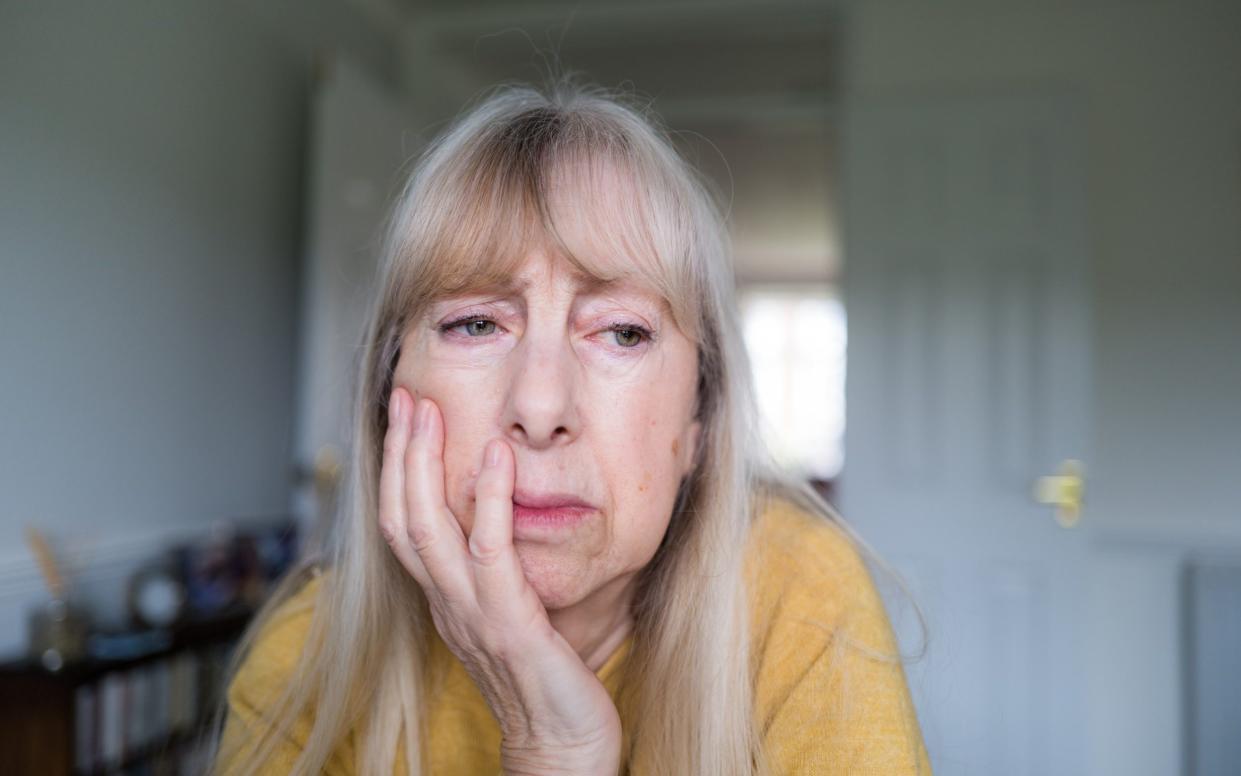One in three UK women are sad - worse than Saudi Arabia and Kosovo

One in three British women feels sad, with worse emotional health than those in Kosovo and Saudi Arabia, health league tables show.
Research on almost 80,000 women from 143 countries shows rising levels of despair among British women, with worry, stress and anger all rising.
The study found women’s health was worse in the UK than in most EU countries - and falling international rankings.
The trends are at odds with those in many other nations, in particular across the EU, which have seen positive gains in recent years.
The annual global survey, first published in 2020, shows sadness levels in the UK have risen significantly ever since.
The latest poll found 32 per cent of women in the UK felt sad the previous day - up from 21 per cent three years ago. Across EU countries the average figure was 26 per cent.
Researchers found that 39 per cent of British women reported stress, against an EU average of 34 per cent, while 17 per cent reported anger, against an EU average of 15 per cent.
In total, 38 per cent of those polled said they had felt worried the previous day, a similar figure to the 39 per cent across EU nations.

Each of the “negative” emotions has seen a significant rise among women in Britain since 2020, with a 6-point increase in worry, stress and anger, while it was falling across the rest of Europe.
Among European countries, the UK ranked 22nd out of 31 for emotional health, in the 2023 Hologic Global Women’s Health Index.
Countries where women were less likely than those in the UK to say they had experienced worry, sadness, stress and anger included Hungary, Latvia, Estonia, Poland, Lithuania and Bulgaria, as well as Ireland, Germany, Greece, Denmark and the Netherlands.
Beyond the EU, Kosovo, Russia, Zimbabwe, Uzbekistan and Saudi Arabia all fared better than the UK for their emotional health scores.
Vietnam topped the list, while Afghanistan was at the bottom.
The index published on Wednesday ranks healthcare, as well as well-being and happiness levels.
For healthcare, the UK was 21st out of 31st across European countries.

Women in the UK were more likely than their EU counterparts to feel dissatisfied about being able to access high-quality healthcare - such as getting a GP or hospital appointment - where they lived.
The number of women who said chronic conditions inferred with their daily lives has increased by more than 50 per cent in three years.
In total 67 per cent of women in the UK said they were satisfied they could access high-quality healthcare, down from 75 per cent three years ago.
The proportion who said care during pregnancy was satisfactory fell from 77 to 74 per cent in the past year.
The Index is compiled through interviews with around 500 women in each country by global analytics firm Gallup and Hologic, a medical technology company specialising in women’s health.
Each country is assigned a score based on how it performs in five areas of women’s health and wellbeing: preventive care (such as cancer and high blood pressure screening), basic needs (including ease of access to food and housing), health and safety (including how safe women feel walking at night), individual health (including how pain and poor health affect women’s day-to-day lives) and emotional health.
The poll found women in the UK were less likely than those living in EU countries to have received preventive care in the past year, with fewer receiving screening for high blood pressure, cancer, diabetes and sexually transmitted infections than the EU average.
Tim Simpson, of Hologic UK & Ireland, described the findings as “a call for action and improvement”.
He said: “Despite significant potential for progress, the UK is being leapfrogged by other countries, which are making more substantial gains in women’s health.
“This underscores an urgent need for enhanced focus on topics like preventative measures and pregnancy care, to not only catch up but to set a standard for women’s health globally.”
Dr Ranee Thakar, president of the Royal College of Obstetricians and Gynaecologists, said: “This work underscores the critical need for governments, non-governmental organisations and policy-makers to prioritise women’s health and invest in interventions that put women’s best interests first.”


